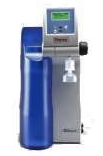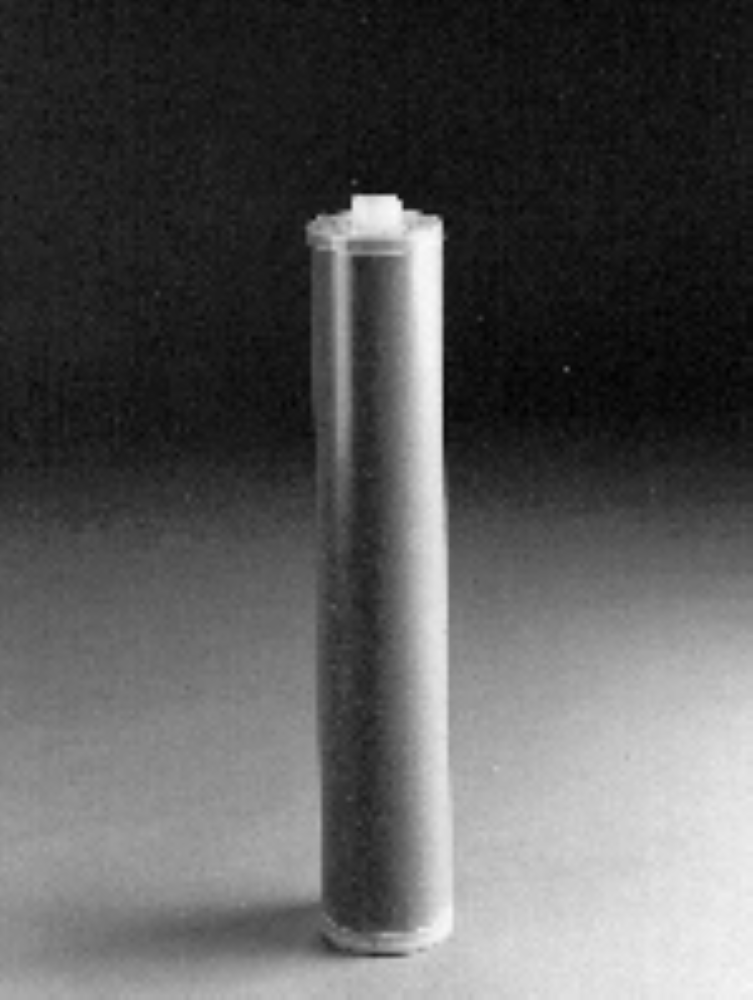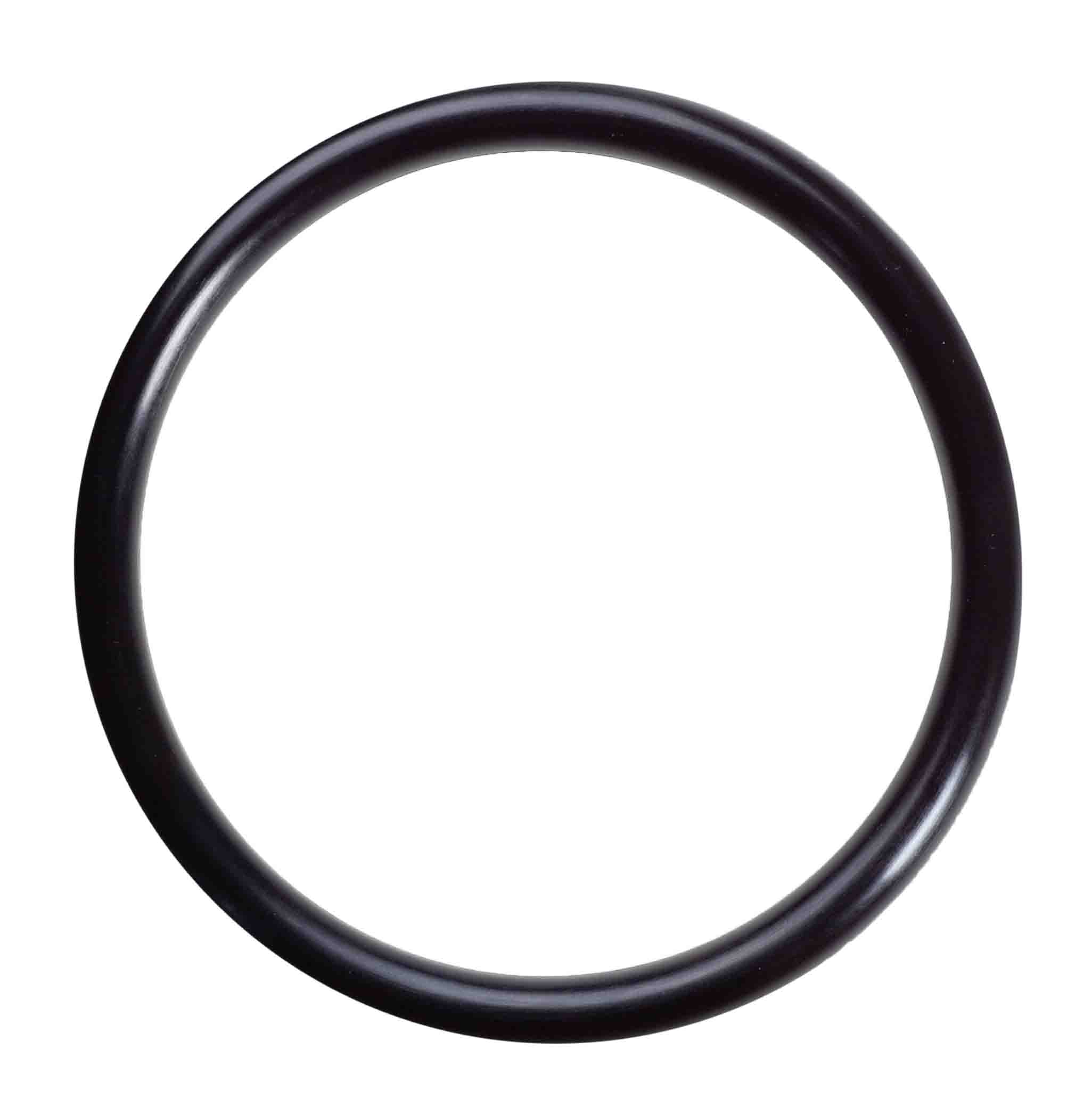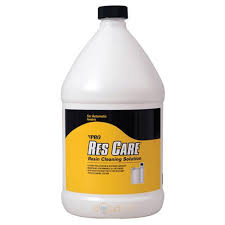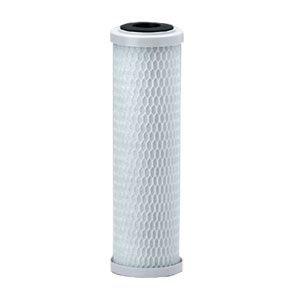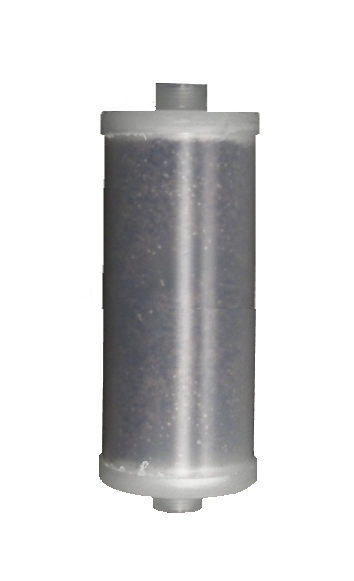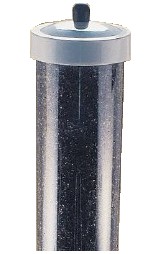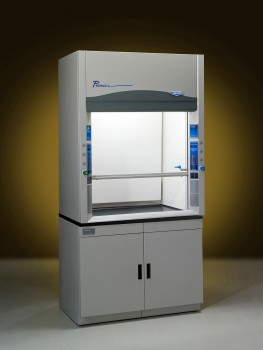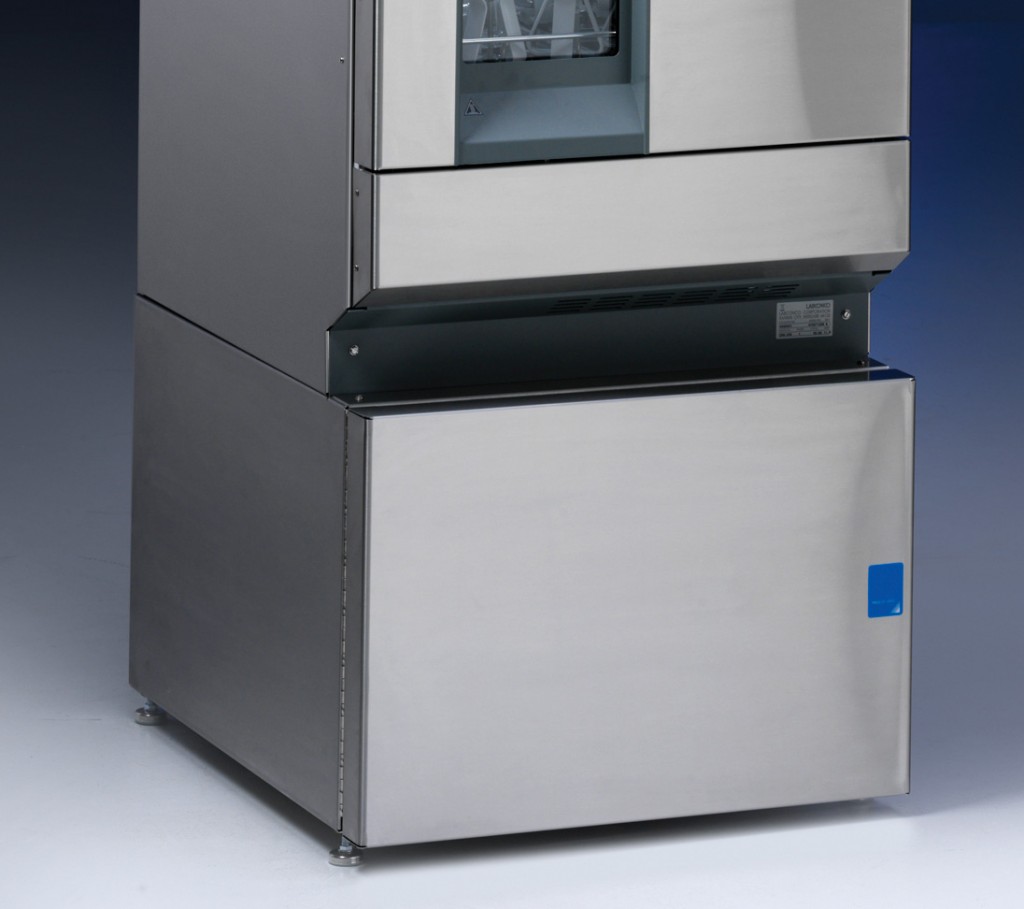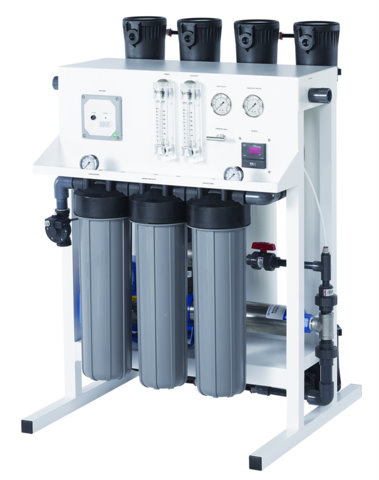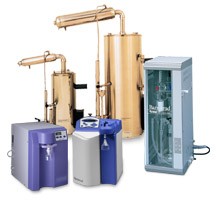 |
Need a New Laboratory Water System?
We have many to choose from. We can save you thousands on
Complete Systems and replacement filters for most brands. |
Troubleshooting A Water Pressure Bladder Tank
Quick check for blown bladder
1. Turn off pump
2. Open faucet (wait for flow to stop, leave open)
3. Shake bladder tank
4. If it still has water in it, it is blown
What is a bladder pressure tank?
It is a type of tank containing pressurized air and water separated by a membrane (bladder). They are precharged with air at the factory. An average bladder pressure tank lasts 5-7 years.
Also See :
Different uses for Water Pressure Bladders
Pressure Bladders can be found here
How do bladder pressure tanks work?
As water pressure changes, the volume of air in a bladder pressure tank contracts and expands. Periodically, the amount of air in the tank should be measured and the tank recharged if the air is too low. Bladder pressure tanks do not provide any useful water storage capacity.
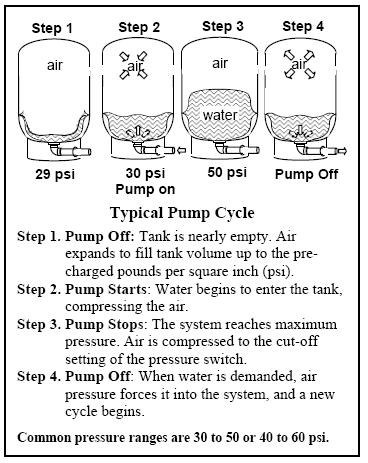
What functions do bladder pressure tanks serve?
Maintain a desired range of water pressure in the distribution system.
Minimize pump cycling, preventing frequent starts and stops protecting facilities from damage.
Protect against water hammer.
Troubleshooting Guide - Check the bladder pressure tank air charge
Disconnect electrical power to the pump.
Drain the tank by opening the closest faucet.
Check tank pressure by placing a tire gauge on the air-charging valve on top of the tank.
Add air if the pressure is more than 2 psi below the
pump cut-in pressure (lowest pressure in the range). Use a tire pump or air compressor. Use caution with an air compressor.
Release air if the pressure is 2 psi above the pump cut-in pressure.
Check for leaks in the air charging system. Use a soap solution to check the air charging valve for leaks.
Re-start the pump and run through a normal cycle to verify the setting.
Helpful hint! If tank pressure drops, the bladder may have a tear or hole in it.
Check for waterlogged bladder pressure tank problems
A tank is waterlogged if it is completely filled with water or has too much water to function correctly.
Waterlogged bladder pressure tanks contribute to the following problems :
The pump motor cycles – turns on and off – too often.
Frequent cycling can shorten the lifespan of a pump. 1 to 5 HP pump motors should not cycle more than five times an hour. If your pump is cycling, check to see if the tank(s) is waterlogged.

Unsatisfactory coliform samples or taste and odor complaints. Waterlogged tanks contain stagnant water that can contribute to bacterial problems or taste and odor complaints.
Premature tank failure. The inside walls of a waterlogged tank can corrode and weaken from the exposure to water.
Helpful hint! It is often most cost-efficient to replace a waterlogged tank.
Drinking Water Tech Tips :
If your tank is waterlogged, check for possible causes
Bladder pressure tanks can become waterlogged for many
reasons. Some of the more commons reasons are:
Sediment, such as iron and manganese, can coat
the surface of a bladder, causing it to harden and
become less flexible.
Sediments can plug the fill or draw line, preventing
the tank from filling and emptying normally.
High levels of chlorine can damage the bladder,
causing it to become brittle and less flexible.
Tanks sitting directly on the ground rust and lose
structural integrity.
Chlorinators give off corrosive vapors that cause
the tank to rust.
Remember! When working with bladder pressure tanks
it is important to read and follow the Manufacturers Safety Warnings!
|
Images are representative of the products. Images may or may not be of the actual product. If it is important e-mail us for an actual image if available.
* Flat Rate UPS shipping when able to ship via UPS and is in the USA excluding Hawaii and Alaska.
Larger Items may not be able to ship via UPS, in that case freight charges will be quoted seperately.
International shipping will be quoted after the order is placed. You will have the opportunity to cancel before we finalize your order.
Terms and conditions
Credit Application
Privacy
Policy
List All Products
|






